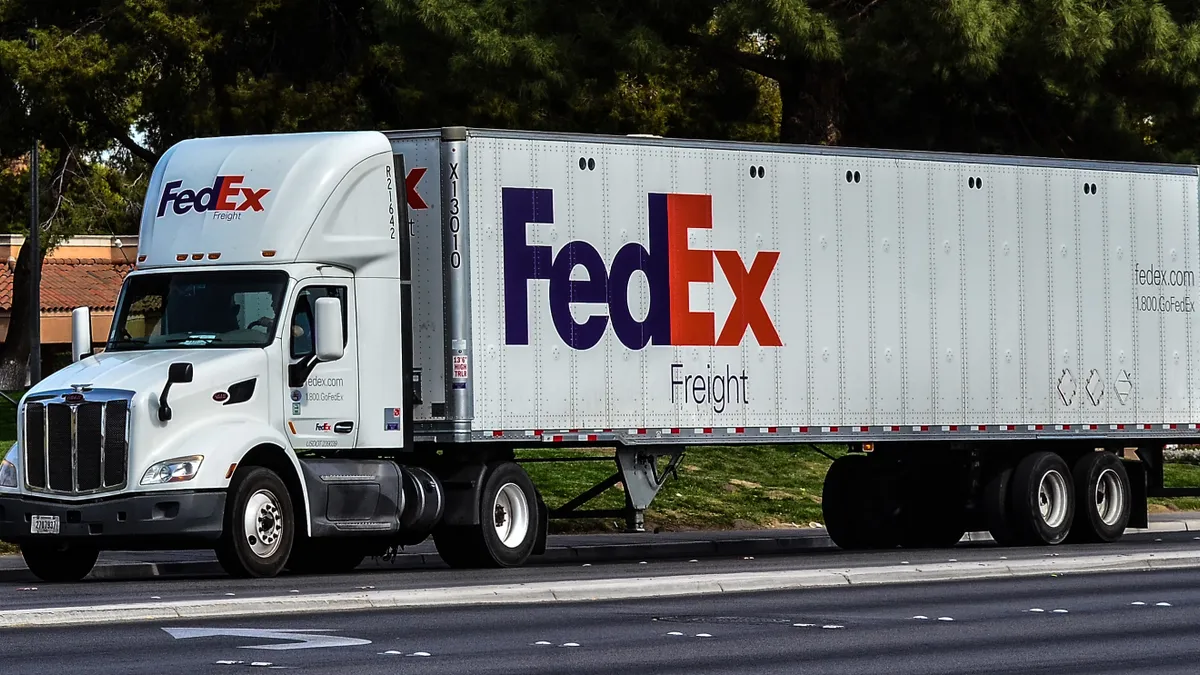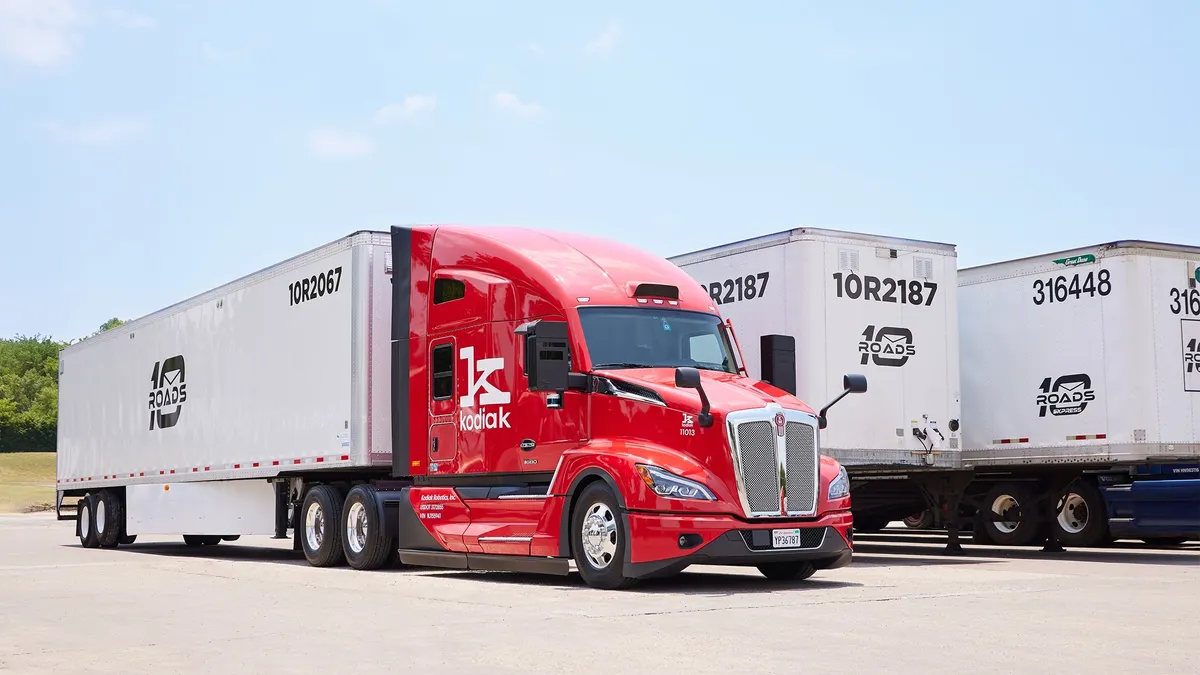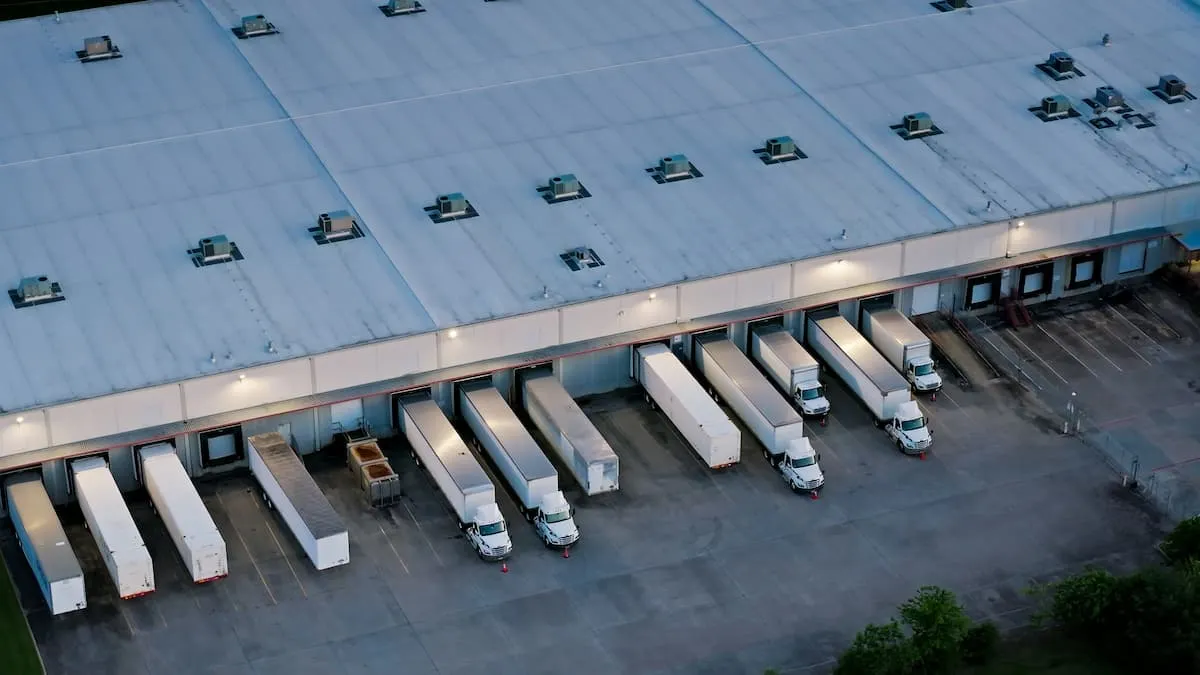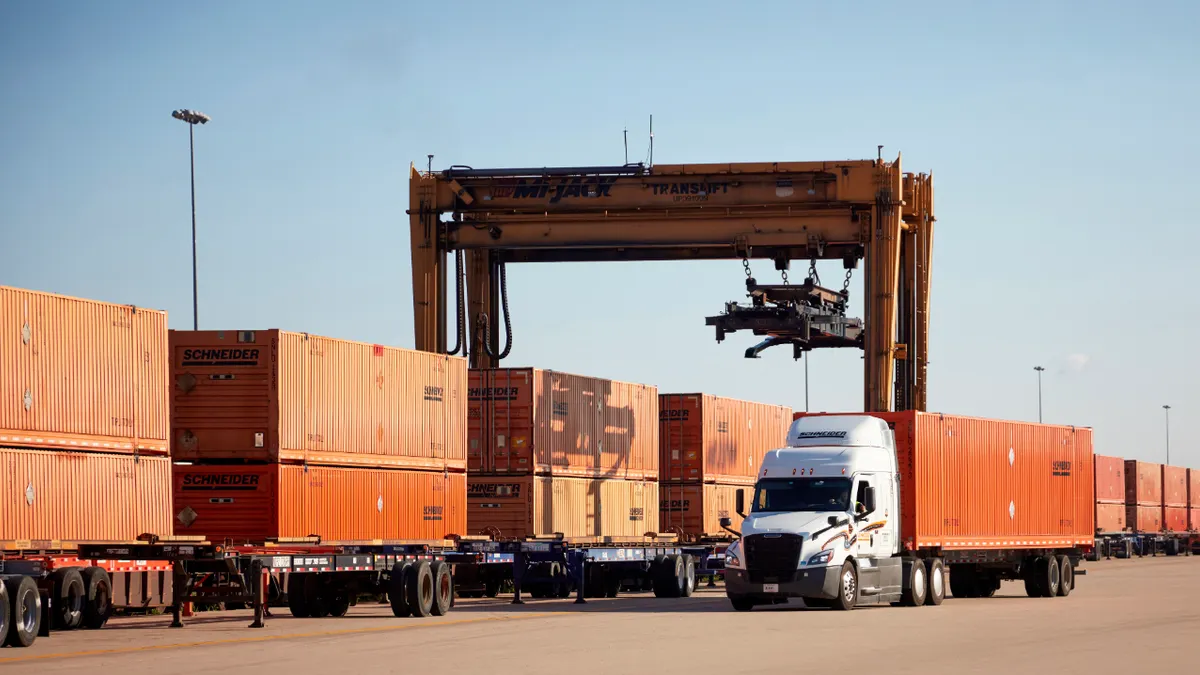California lawmakers made progress on advancing the state's electric vehicle (EV) market this legislative session, despite President Donald Trump's announcement Wednesday that his administration intends to challenge the state's ability to regulate greenhouse gas emissions from vehicles.
The Trump administration's move, at its most extreme, could threaten the state's Zero Emission Vehicle (ZEV) rebate program, Therese Langer, director of the American Council for an Energy-Efficient Economy's transportation program told Utility Dive, which is essential to its EV rollout but in part dependent on the Environmental Protection Agency's waiver.
"Despite the actions by the federal government, the signal is clear from policymakers and the administration that California will continue to lead on transportation," Amisha Rai, managing director at Advanced Energy Economy, told Utility Dive. "And the bills that passed and made their way to the governor's desk this year will help enable that shift … Transforming existing programs so that they're more market oriented and able to push the market more aggressively can help enable that."
"More than 40% of greenhouse-gas emissions in the state come from the transportation sector, and California communities are disproportionately impacted by air quality issues, when compared to the rest of the nation."

James Noonan
Spokesperson, PG&E
The White House is planning to revoke California's federal waiver on emissions regulations, "in order to produce far less expensive cars for the consumer, while at the same time making the cars substantially SAFER," President Donald Trump tweeted Wednesday. The administration has indicated its intention to revoke the state's ability to regulate these standards since July of last year.
Several automakers and electric utilities oppose the administration's efforts, concerned they will impede progress on electric vehicle growth in a state with some of the most aggressive EV goals in the country.
"More than 40% of greenhouse-gas emissions in the state come from the transportation sector, and California communities are disproportionately impacted by air quality issues, when compared to the rest of the nation," PG&E spokesperson James Noonan told Utility Dive in an email.
"To that end, PG&E believes the California Air Resource Board's long-standing ability to set more stringent air pollution limits served the best interests of PG&E's customers and the state of California, and is disappointed by today's decision to revoke that ability."
Threat to the EV market
In July, Ford, Honda, BMW and Volkswagen struck a deal with California, which would award the four companies additional EV credits to meet greenhouse gas emissions standards, but would lower the actual emissions standards those companies would have to meet.
In addition to consumer vehicles, trucking companies are banking on EVs as well, with NFI and Penske set to deploy electric eCascadia trucks, built by Daimler, as part of drayage and delivery fleets in Southern California later this year.
California has a mandate that calls for 1.5 million ZEVs on the road by 2030, based on a legal waiver the state has under the Clean Air Act that allows it to set its own greenhouse gas emissions standards.
Continued focus on EVs
Despite setbacks from the Trump administration, state leaders still have programs that will be essential to driving the EV market, stakeholders noted.
"It really is key just how important the ZEV program is," particularly because those standards have been spread to 13 other states and the District of Columbia, said Langer. But the state also gives out "considerable" tax credits for EV purchases and is focused on charging infrastructure rollouts, which will be key as well, she said.
"It behooves the state to help enable that transition."

Amisha Rai
Managing director, Advanced Energy Economy
California passed six ZEV-related bills last session, several of which passed with bipartisan support. One of the more significant bills was Senate Bill 784, which exempts zero-emissions busses from a sales tax. Its passage was a testament to the strong policy behind driving the ZEV market forward with a particular focus at the local level, said Rai.
"It behooves the state to help enable that transition," she said. "The fact that the legislature showed such broad support for the state providing this type of assistance and seeing how that could help accelerate the transition was great."
The state also passed a bill focused on transitioning California's medium to heavy duty vehicles toward lower emissions and another focused on grid-to-grid integration.
ZEV bills that passed both legislative chambers during the 2019 session
|
Bill |
Description |
|---|---|
|
AB 684 |
Requires regulators to review building standards every 18 months to determine charging infrastructure compatibility for apartments and non-residential buildings. |
|
AB 784 |
Exempts electric busses from state sales tax. |
|
SB 44 |
|
|
SB 676 |
Aims to optimize EV grid benefits by streamlining vehicle to grid strategies across load-serving entities |
|
AB 285 |
Directs regulators to aligns long-term transportation plan with GHG reductions |
|
AB 970 |
Makes grants available for ZEVs to be used for non-emergency vehicles, people with disabilities and older people |
The Trump administration's ruling, expected Thursday, will inevitably lead to litigation, said Langer, and the results of that litigation will either lead to an absolute elimination of the state's rebate program, like the Trump administration wants, or will allow the state's programs to go forward undisturbed.
"There are a range of possible outcomes in between, of course, and given just how important both the [emissions] standards, but even more that [ZEV] program, has been in driving that market, I think this is just a huge range of outcomes," she said.
This article was updated to clarify Penske's use of electric trucks.























